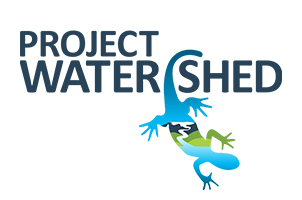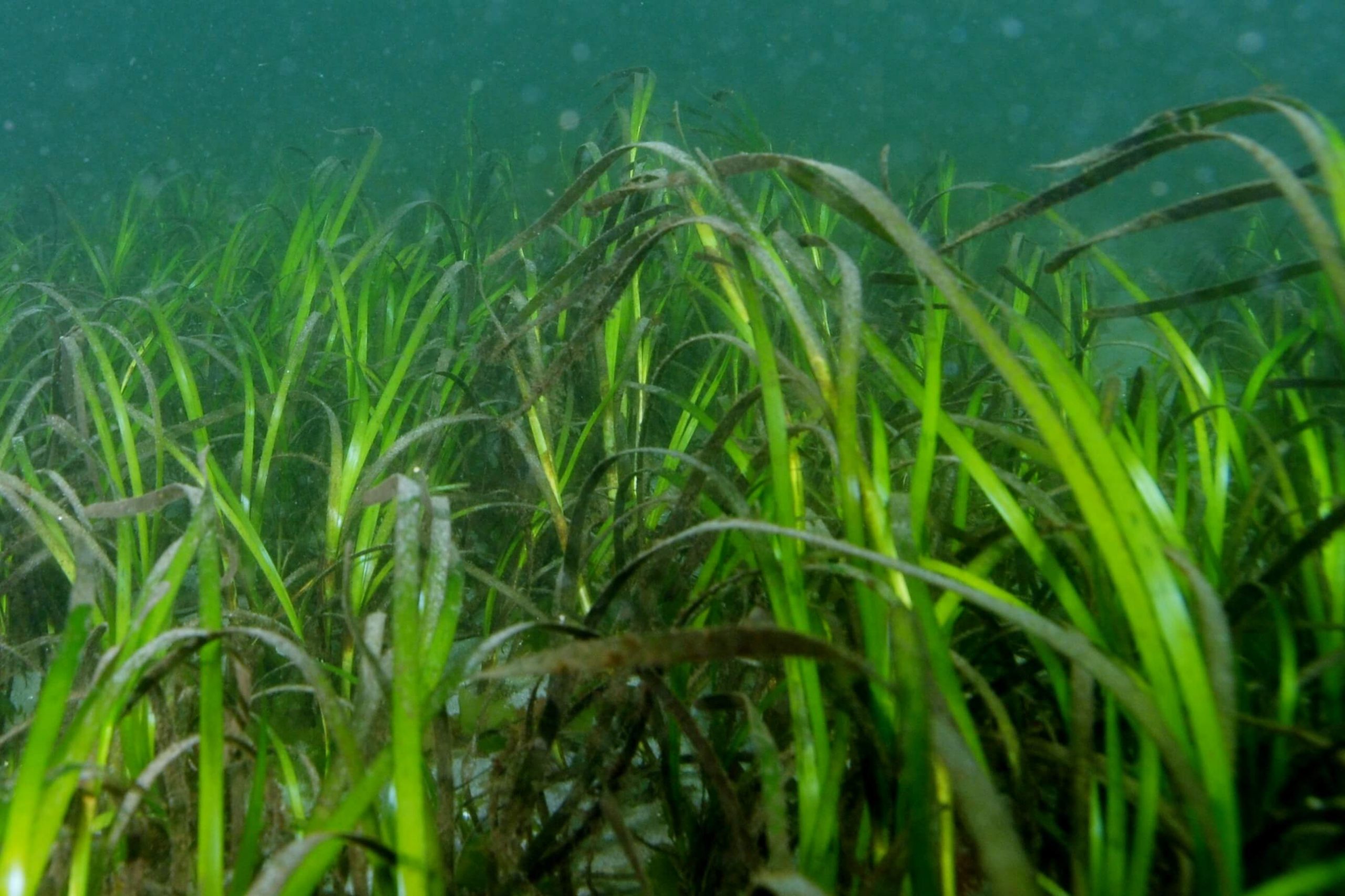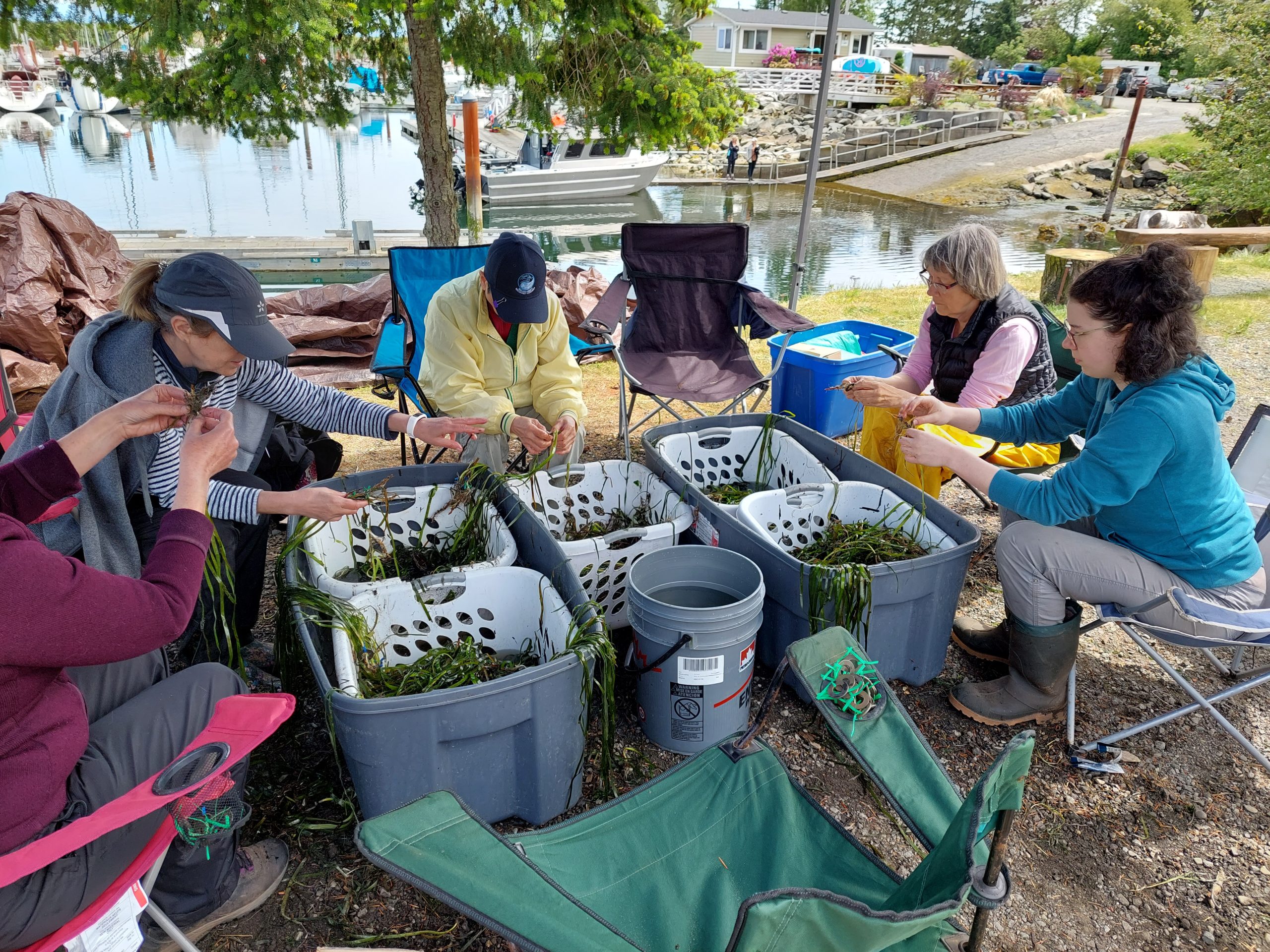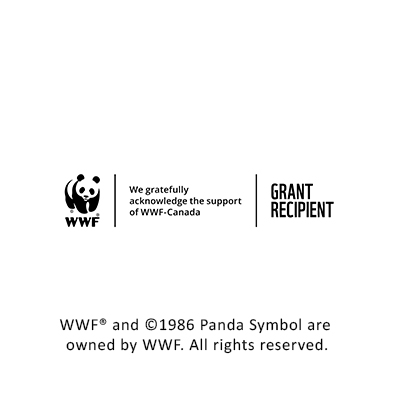2022 Eelgrass Restoration Update
What is Eelgrass and Why is it Important?
Eelgrass is a perennial flowering plant (not a seaweed!) and is referred to as a type of submerged aquatic vegetation. Eelgrass meadows are extremely biodiverse and provide many services to both humans and aquatic species; they protect salmonoids, forage fish and invertebrates from predation and provide shoreline resilience by buffering wave energy and stabilizing sediments. Eelgrass habitats also capture and store blue carbon from the atmosphere which helps to offset the impacts of climate change.
Restoration Efforts
In 2019, Project Watershed developed a coastal restoration plan to address the shrinking eelgrass habitat along our coastline. Eelgrass habitat degradation has been occurring around Vancouver Island for many years from foreshore hardening, industrial and residential shoreline development, and infilling of estuaries.
This spring (2022), Project Watershed planted 1,100 m2 between our subtidal site at Miracle Beach with our team of divers, and our intertidal site at the Trent River estuary. We had help from our amazing volunteers at both sites; at Miracle beach they were preparing the eelgrass for the divers to plant, and at Trent River, they harvested donor stock, prepared the plants, and planted them.
We are aiming to plant 2,000 m2 of eelgrass in total for this project.
A Special Thanks…
This project wouldn’t be possible without a generous donation from our funder, the World Wildlife Fund (WWF). WWF Canada is the country’s largest international conservation organization and their vision is “to create a world where nature and people thrive.”
Sponsor
Related Posts
Mallard Creek Restoration Update for 2024
Restoration work in Mallard Creek will continue this year, including invasive removal, restoring connectivity, and trial planting of a new riparian species. Volunteer events starting in September 2024.
Volunteer at Kus-kus-sum Chamber of Commerce Event
We are showing Kus-kus-sum off to businesses in the Valley through a Chamber Business to Business event. We are looking for a few volunteers to assist with this event.
Coastal Plant Monitoring
Get involved with our new vegetation community science monitoring program!
Spring Field Trips
Throughout May and June Project Watershed will be taking elementary school classes out on field trips to learn about estuary and coastal ecology and to assist with planting and plant maintenance.
Working Together to Identify Forage Fish Spawning Beaches
This year marks the 5th year of a partnership between Comox Valley Project Watershed Society and North Island College on a long-term study to examine intertidal spawning habitats of forage fish in the northern Salish Sea.
Glen Urquhart Update – Spring 2024
Latest news from Glen Urquhart restoration progress for spring 2024.




